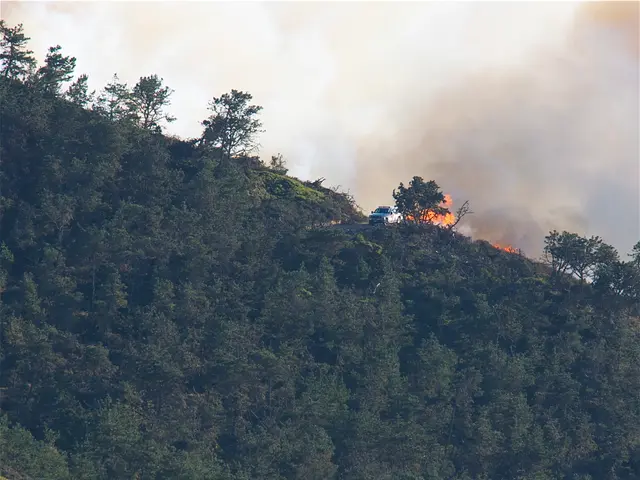Scarcity of Water: A shortage in water supply
In various European and Middle Eastern countries, a severe water crisis is unfolding, driven primarily by climate change-induced droughts and human pressures. The affected nations include Turkey, Cyprus, Greece, Spain, England, Italy, France, and Iran.
The root causes of this crisis are multifaceted. Climate change, with its rising temperatures and altered rainfall patterns, is leading to prolonged droughts and extreme weather events. For example, Cyprus is experiencing severe droughts and extreme heatwaves that destroy habitats and homes.
Increased water demand from growing populations and agriculture pressures is straining limited water resources in Mediterranean countries like Spain and Italy. Environmental degradation, such as forest destruction from wildfires, further exacerbates water scarcity and pollution problems. Inefficient water and waste management also plays a significant role, as noted in Cyprus' environmental policies.
The effects of this water crisis are far-reaching. Reduced agricultural productivity and crop losses threaten food security. Economic costs from environmental damage and disaster recovery are mounting, such as the destruction caused by fires in Cyprus. Water shortages impact households, industries, and ecosystems, leading to increased social unrest and migration pressures. The risk of wildfires also increases, helped by dry conditions and vegetation loss.
Governments across these countries are proposing a range of solutions to address these challenges. Investments in water infrastructure, such as improving water supply systems, storage, and efficient irrigation technologies, are being considered. Environmental policies addressing greenhouse gases and water management gaps are also being developed. Financial aid and EU support are being sought to mitigate drought impacts and support affected sectors.
Climate adaptation and resilience building are essential components of these solutions. Recovery and resilience plans, often updated under EU frameworks like REPowerEU, aim to diversify resources and save energy while improving water resilience. Sustainable agriculture practices and reduction of water consumption in farming are also being promoted.
Raising public awareness and international cooperation are crucial to address shared water challenges. In Cyprus, the Cypriot Broadcasting Corporation (RIK) prioritizes preventing water disruptions in the tourism sector. In Turkey, the city of Izmir is reducing water supply until late August due to dwindling dam levels.
In Italy, drought is worsening in central and southern Italy, particularly on Sicily. The government of Cyprus is urging the public to conserve water, and more desalination plants are planned to combat the water crisis. In Spain, dam levels are decreasing due to summer weather conditions and increased consumption during the holiday season.
England is experiencing a nationally significant water shortage, with five regions experiencing drought and six more facing prolonged dry weather. Garden hosepipe bans have been introduced in Yorkshire due to water shortages. In France, agricultural restrictions are being implemented due to declining groundwater reserves and river levels.
Iran, one of the world's driest countries, is facing a decline in rainfall and an increase in droughts and extreme weather events. The government has implemented drastic measures, including daily water cuts in many parts of Tehran and other cities. Authorities in southern France are imposing water usage restrictions due to persistent drought and high temperatures, prioritizing drinking water supplies.
In Greece, dams are at historic lows, with reserves around Athens down by 50% compared to 2022. A drought alert has been declared in the Pla region of Mallorca, Spain, due to a severe water shortage across the archipelago.
As these water crises continue to unfold, it is clear that collective action and cooperation are necessary to ensure a sustainable water future for all.
- Despite increased demands for water from agriculture and growing populations in countries like Spain and Italy, climate change-induced droughts and extreme weather events are exacerbating the water crisis.
- To combat the water crisis, environmental science plays a crucial role in developing effective solutions, such as efficient irrigation technologies and sustainable farming practices.
- Weather forecasting is essential for weather-vulnerable nations like Cyprus and Turkey, as it helps in predicting extreme heatwaves and droughts and enables strategic water management.








